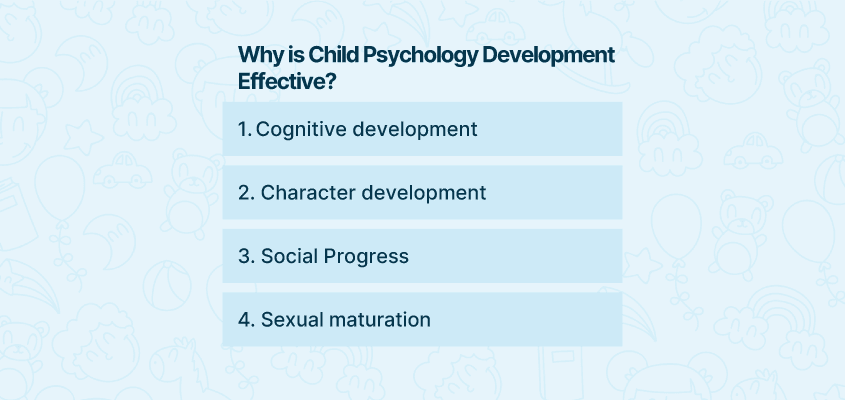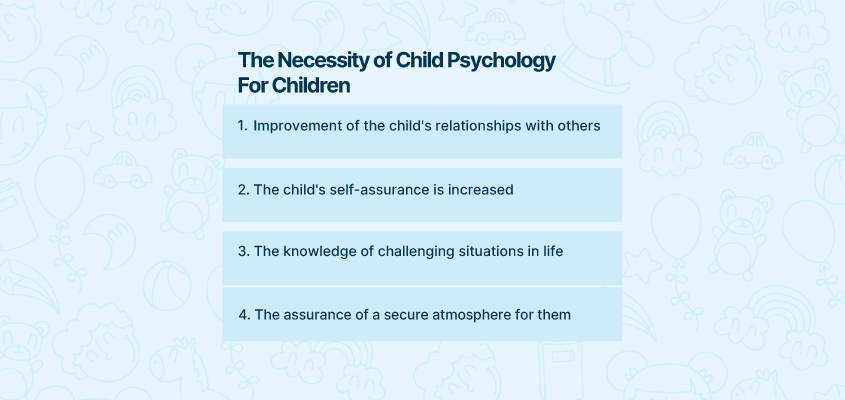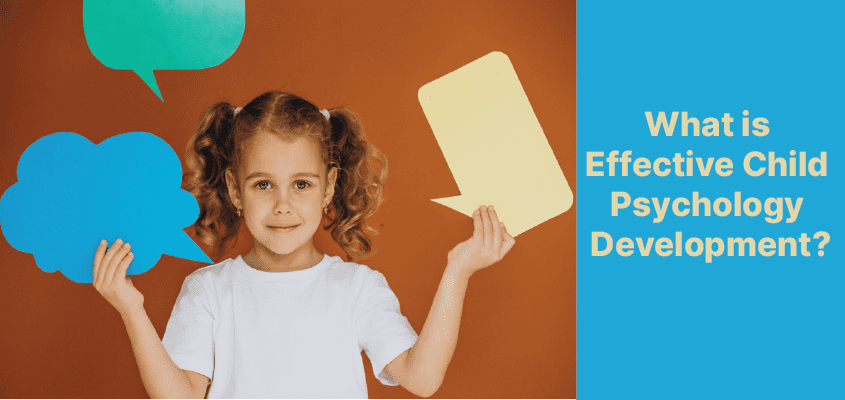Introduction
In ancient times, children were mandated to work amongst adults in conventional jobs and were often required to look like adults. The historical perception of children as little adults is essential to this practice, and child psychology was an unfamiliar concept in this setting.As we know, a person’s formative years significantly impact their adult lives. Even seemingly trivial, minor incidents can hugely impact how we feel and act as adults. A child psychologist is a specialist in developmental psychology who studies children and their development throughout this crucial stage of life.Before attempting to define the phrase “child psychology,” it is essential to recognise the complexity of children and the many factors that play a role in childhood.Various surroundings impact the child. We can list the family, school, society, cultural and economic concerns, cohabiting with other kids, and even genetic concerns as some of these surroundings that affect a person’s development.Numerous circumstances can affect how youngsters live their lives and development. We can distinguish between those that are short and simple to handle and those that need expert follow-up better to fulfil the child’s needs at the time and promote healthy cognitive development and emotion control.
What is child psychology development?
The study of child behaviour is the primary goal of child psychology, which also considers the circumstances that influence children’s quality of life, emotions, and learning.Child psychology looks for alternate methods to help kids deal with their concerns and anxieties through psychotherapy techniques that aid in resignifying traumatic situations because kids sometimes can’t articulate themselves verbally.With expert assistance and creating a more secure environment for their development, the kid will express themselves via their behaviours and emotional out-of-control.

Why is child psychology development effective?
The field of child psychology covers a wide range of themes, from societal constraints on development to genetic implications on behaviour. Some of the key topics that are crucial to the study of child psychology include the following:
- Growth of the mind, Cognitive development
- Environment-related factors
- Norms for Gender
- Genetic factors
- Genetic factors Languages
- Character development
- Early development
- Social Progress
- Sexual maturation
For instance, child psychologists may investigate whether childcare environments and procedures produce the best psychological results or work with children to encourage growth mindsets.An area’s development can have a significant impact on another. Writing words require both fine motor and language-based cognitive abilities. Research has demonstrated that product adheres to specific patterns or principles in addition to the various fields. Understanding these concepts has impacted how we care for, handle, and teach children.
The necessity of Child Psychology for children
Child psychology is crucial because it can improve our comprehension of how children function and show us how to support them as they develop into well-rounded adults effectively. As a result, it helps parents, teachers, and other carers understand and keep the kids in their care.Recognising emotional pain in kids and teens preserve the most significant parts of childhood for your child and getting them the care they need as soon as feasible. Considering this, it is possible to notice the therapeutic effects of child treatment even in the initial follow-ups. The entire family must participate in this critical process.
- Clarification of parental understanding of their children’s behaviour is through child therapy, and parents have access to tools to comprehend and solve this issue.
- As concerns start to be conquered and well-being is encouraged, the quality of life for young children has changed dramatically.
- The improvement of the child’s relationships with their peers, family, and teachers is in line with the development of emotional skills.
- The child’s self-assurance is increased to explore the world around them.
- The knowledge that there are challenging situations in life.
- The assurance of a secure atmosphere for their development
Impact of child psychology
- Create a wholesome understanding of differences.
For teachers to effectively convey their lessons in class, educational psychology can help them comprehend the distinctions among students. Understanding the meaning of ADHD would allow a teacher to be effective because some children have been diagnosed with it.
- Create a conducive environment for learning in the classroom
Children’s psychology can assist teachers in developing a socio-emotional environment that will better enable kids to process what they know in class and foster their emotional engagement with the world.
- Offer children guidance
While parents and childcare workers must play various roles in children’s psychology education, both must serve as role models for young people. Students who need aid with problem-solving receive guidance.
- Assess Learning Results
Evaluation helps determine how well kids have learned. Teachers can still do better and be more effective for children’s psychology through technical evaluation, consistent application of principles, and gathering evaluation results.
Conclusion
Understanding what makes children go is difficult, making child psychology a vast and in-depth subject of study. The aim is to better parenting, education, child care, psychology, and other fields that aid children by studying the various variables that combine and interact to help shape children into who they are. Parents and other adults who work with children can better support the children in their care by thoroughly knowing how children develop, think, and behave.
References
- K. Cherry, “Children’s psychology: Contexts and influences,” Verywell Mind, 03-Jun-2009. [Online]. Available: https://www.verywellmind.com/what-is-child-psychology-2795067. [Accessed: 21-Mar-2023].
- The Editors of Encyclopedia Britannica, “psychological development,” Encyclopedia Britannica. 06-Jan-2023.
- “Child development,” Psychology Today









